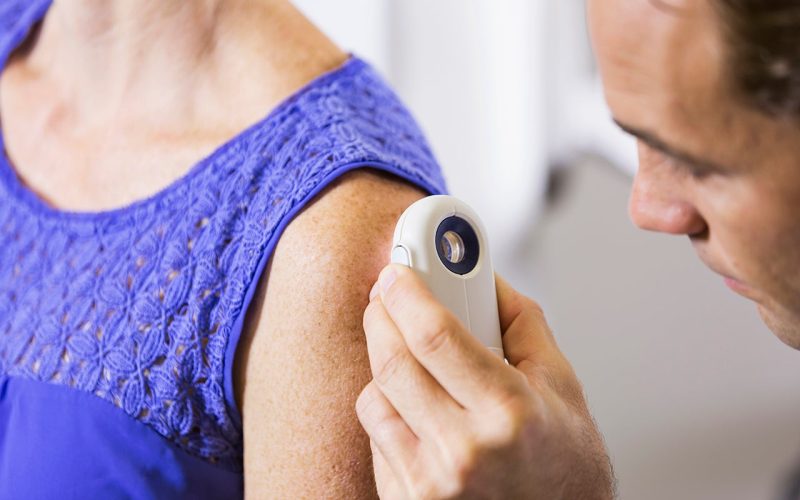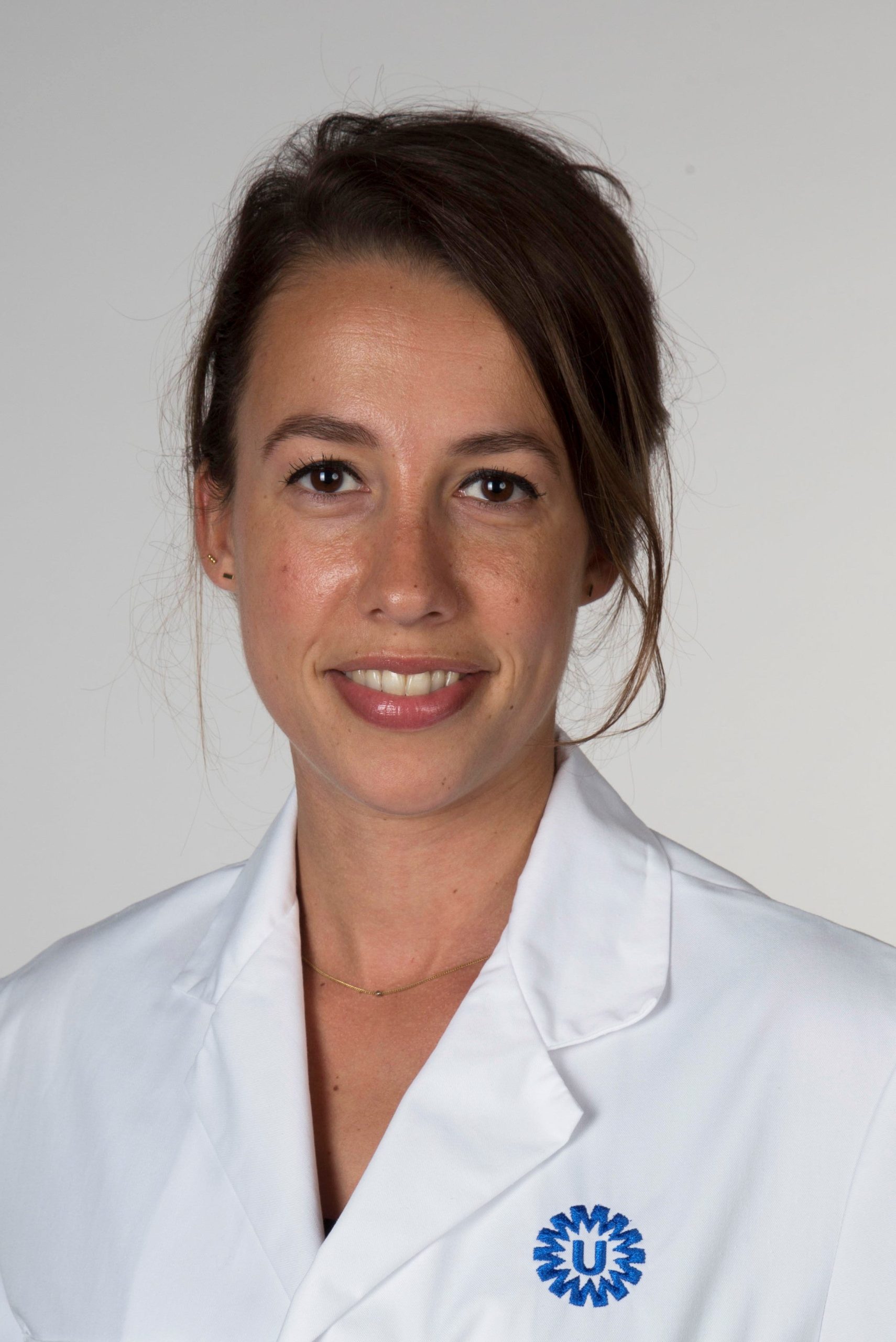In approximately 80% of patients with melanoma who undergo lymph node surgery, the lymph nodes do not appear to contain metastases. UMC Utrecht researcher and dermatologist Mary-Ann el Sharouni developed a new prediction model that provides a better estimate of whether melanoma will spread to the lymph nodes. Yesterday she received her PhD from Utrecht University.
Every year, about 7,000 people in the Netherlands are diagnosed with melanoma. Melanoma is a form of skin cancer and can be very aggressive: then the cancer cells quickly spread to other parts of the body. If metastases are found, a person is less likely to recover from melanoma. The cancer cells usually spread first to the lymph nodes near the melanoma.
With lymph node surgery, a physician can examine whether there are metastases in those lymph nodes. This is surgery under anesthesia and is only necessary if there is a risk of the melanoma spreading to other parts of the body.
Physicians now estimate this risk by looking at the thickness of the melanoma and whether the tumor has ulceration. If the melanoma is thicker than 0.8 millimeters or there is ulceration (a sort of wound on the tumor), the physician will recommend lymph node surgery.
However, the current recommendation is not as accurate. In about 80% of patients for whom the physician proposes surgery, the lymph nodes prove not to contain metastatic cancer cells.
“These patients are actually undergoing additional surgery under full anesthesia while it would not have been necessary,” Mary-Ann explains. “If we don’t find metastases, we only treat the melanoma itself. However, if there are metastases in the lymph node, the patient is referred to the oncologist for further treatment. It would help tremendously if we could better assess in advance which patients have a high chance of metastases in the lymph node.”
In her PhD research at the UMC Utrecht, Mary-Ann therefore set out to improve this prediction. Her thesis details a new model that allows physicians to more accurately predict whether the lymph node near the tumor contains metastases. “With this new model, we can more accurately predict whether melanoma will spread. And hence whether the lymph node surgery is actually necessary,” Mary-Ann says.
For this new model, she utilized patient and tumor data from the examinations that are standard practice to arrive at the diagnosis of melanoma. Mary-Ann: “Healthcare professionals can make smarter use of the data that is already available by default. They don’t have to carry out any additional medical procedures for it. As a result, there is also no additional burden for the patient. The model is online and freely available to all.”
In addition to melanoma thickness and ulceration, this model uses the following data:
“I would like to encourage my colleagues to make the best use of patient and tumor data in this model, to predict the risk of metastasis as accurately as possible. This allows physicians to decide together with their patients whether lymph node surgery is necessary or not,” says Mary-Ann in summary. “This kind of prediction leads to a more personalized approach in cancer treatment. Discussions are ongoing at the national level as to whether this prediction model can become part of the national treatment guideline for melanoma in the future.”
Mary-Ann el Sharouni received her PhD from the Faculty of Medicine of Utrecht University on Tuesday, January 25, 2022. Her supervisors are Prof. Paul van Diest and Prof. Carla van Gils and her co-supervisors are Dr. Vigfús Sigurdsson and Dr. Arjen Witkamp. The thesis is titled: Prediction in cutaneous melanomas: a multicontinental approach. Mary-Ann collaborated with the Melanoma Institute in Australia.

